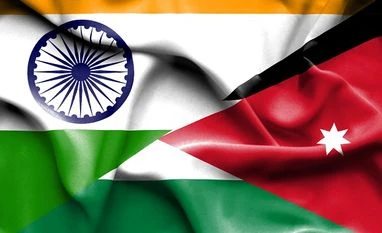India and Jordan on Wednesday discussed ways to increase cooperation in diverse areas like customs, taxation and visa to promote trade and investments between the two countries.
The discussions were held during the 10th India-Jordan Trade and Economic Joint Committee (TEJC) meeting here. The two-day deliberations ended today.
The meeting was co-chaired by Commerce and Industry Minister Nirmala Sitharaman, and Yarub Qudah from the Arab Kingdom's side.
The agreement aims at "boosting and diversifying bilateral trade relations, in addition to promote economic, trade and investment cooperation based on the principle of equity, non-discrimination".
The two countries emphasised the need for diversification of bilateral trade and deepening their engagements for greater cooperation in investments.
"The two sides also reaffirmed their mutual interest and discussed the roadmap for cooperation in various fields such as fertilizer, customs, Double Taxation Avoidance Agreement, visa and consular issues, pharmaceuticals and MSME," it said.
Discussions were also held on ways to increase ties in sectors like maritime, air and rail transport, renewable energy, smart grid development, IT, higher education and vocational training.
The two-way trade between the countries stood at USD 1.35 billion in 2016-17.
The discussions were held during the 10th India-Jordan Trade and Economic Joint Committee (TEJC) meeting here. The two-day deliberations ended today.
The meeting was co-chaired by Commerce and Industry Minister Nirmala Sitharaman, and Yarub Qudah from the Arab Kingdom's side.
More From This Section
The two leaders also inked a revised economic and trade cooperation agreement, the commerce ministry said in a statement.
The agreement aims at "boosting and diversifying bilateral trade relations, in addition to promote economic, trade and investment cooperation based on the principle of equity, non-discrimination".
The two countries emphasised the need for diversification of bilateral trade and deepening their engagements for greater cooperation in investments.
"The two sides also reaffirmed their mutual interest and discussed the roadmap for cooperation in various fields such as fertilizer, customs, Double Taxation Avoidance Agreement, visa and consular issues, pharmaceuticals and MSME," it said.
Discussions were also held on ways to increase ties in sectors like maritime, air and rail transport, renewable energy, smart grid development, IT, higher education and vocational training.
The two-way trade between the countries stood at USD 1.35 billion in 2016-17.
)